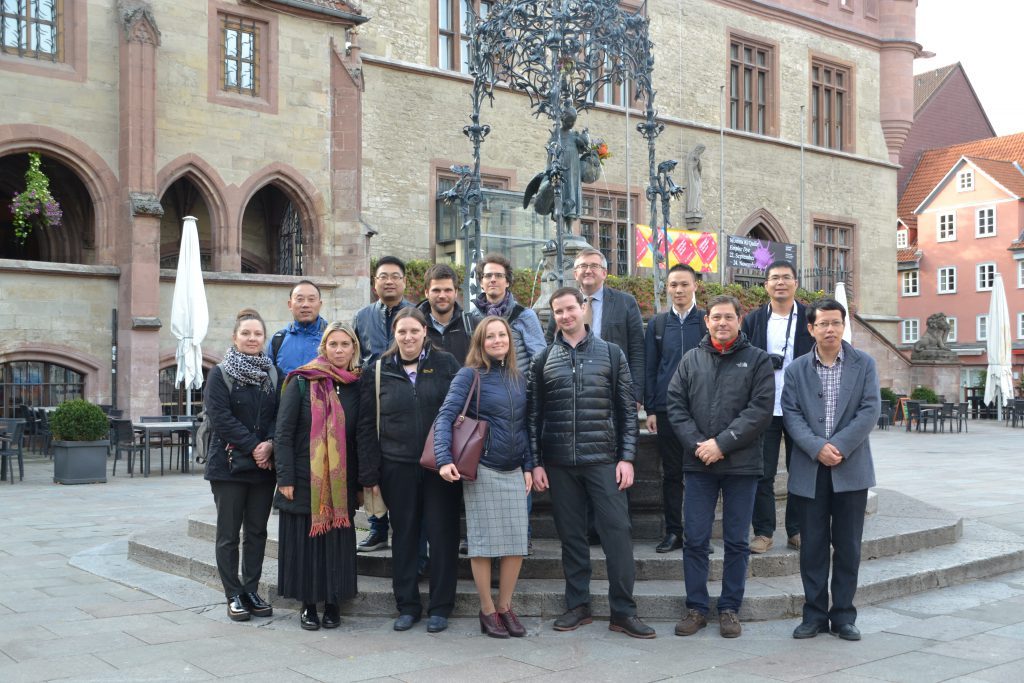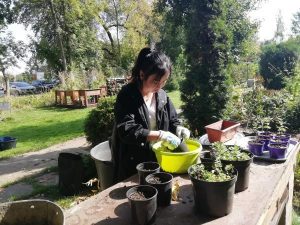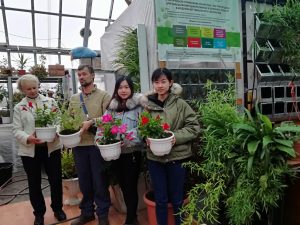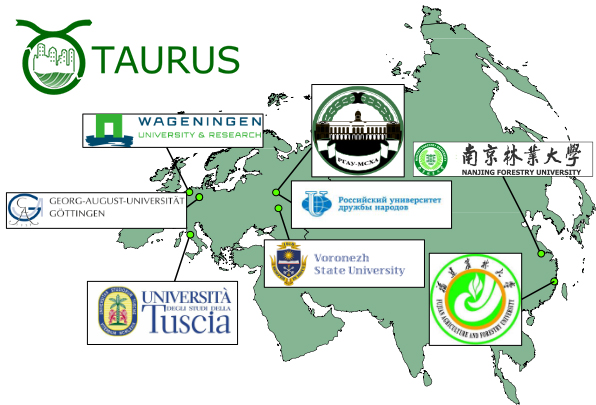Today the SUN Lab team is glad to recall its participation in an international project in support of young scientists in urban studies – TAURUS (Training Capacities in Agriculture and Urban Rural Interactions and Sustainable development of megacities). Starting in 2017, the project was launched in pursuit of providing international support for students who can gain new professional skills necessary for the sustainable development of large urban areas.
In the very beginning TAURUS was one of the projects participating in Erasmus+ Capacity Building – initiative on development of higher education, and ended up as a winner project. Later on TAURUS program has been officially funded by the European Union as a part of the well-known student mobility program ERASMUS+. It is now coordinated by the University of Tuscia (Italy) in cooperation with eight other universities from five countries: three Russian – RUDN University, Russian State Agrarian University, Voronezh State University, two Chinese – Nanjing Forestry University, Fujian Agriculture and Forestry University and two European – Wageningen University (Netherlands) and University of Goettingen (Germany). The SUN Lab team, by the way, is the key coordinator among Russian participant-universities.

For more than three years TAURUS has been creating capacities in professional growth, careers and international networking for graduates in landscape design, urban planning, environmental sciences and agriculture from EU, Russia and China. Thanks to the program, a lot of ambitious and talented students have an opportunity to visit a foreign country exploring new cultures and languages and fully experiencing the life of an international student. Yet the most important benefit of the program is the chance to meet high-qualified experts and expand knowledge and experience necessary for urban professionals.
How does the program manage to function within a big net of universities? Practically, the project is based on four integrated activities. First of all, it is provided with an analysis and identification of professional skills required by the labor market. Usually, surveys are distributed among companies, administrations and NGOs, operating in urban green design and management in all participating countries. The next step is conducting intensive courses and online training programs offered on online platforms. Courses are being drafted based on the educational needs emerging from the survey. The next stage is a crucial part of the program – setting up internships in companies of the five countries participating in the project. A total of 45 mobility grants for Master students are being funded by the ERASMUS + program.


Finally, to provide an efficient interwork and organize the internship process an online platform was created by RUDN. It will provide coordinate needs of students and employers regarding professional training on an international level.
Thus, for more than three years now the TAURUS program has been a further step in the commitment of universities to facilitate a rapid and full employment of their graduates in an international context.

